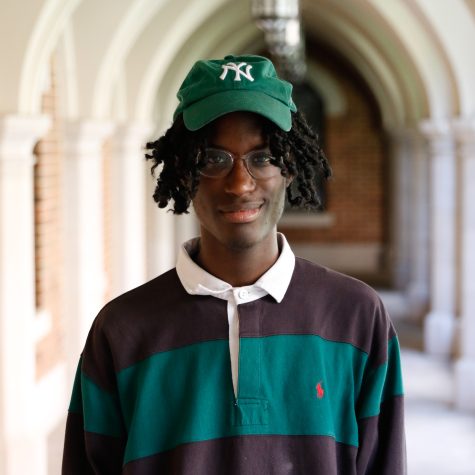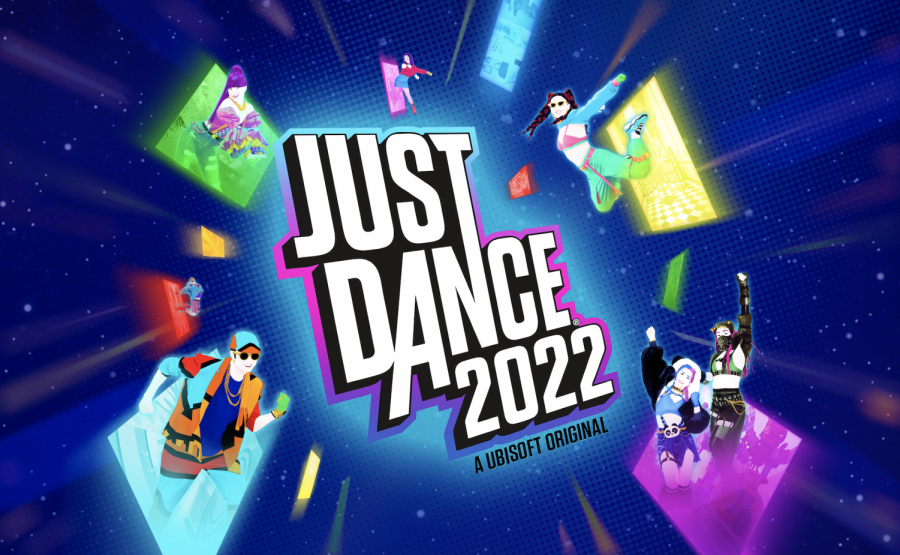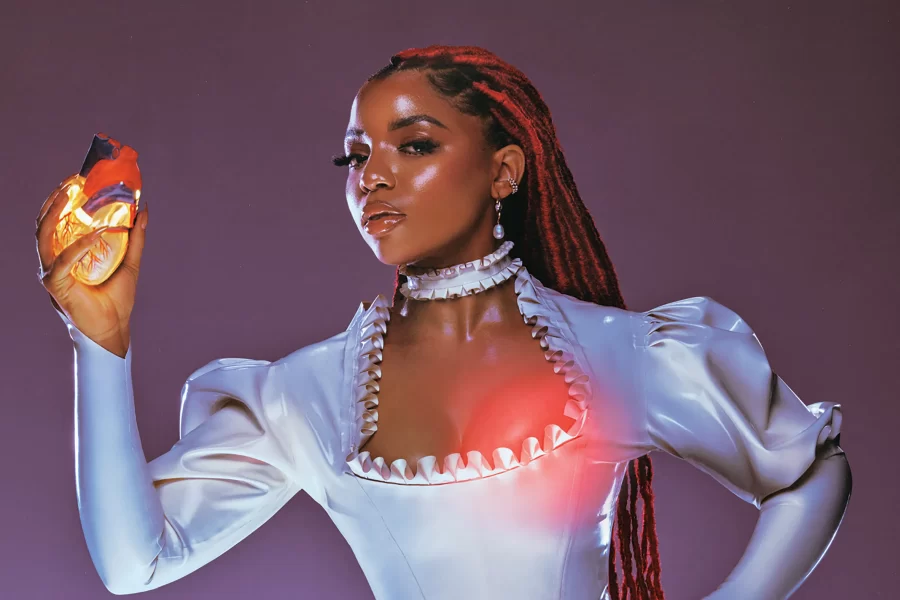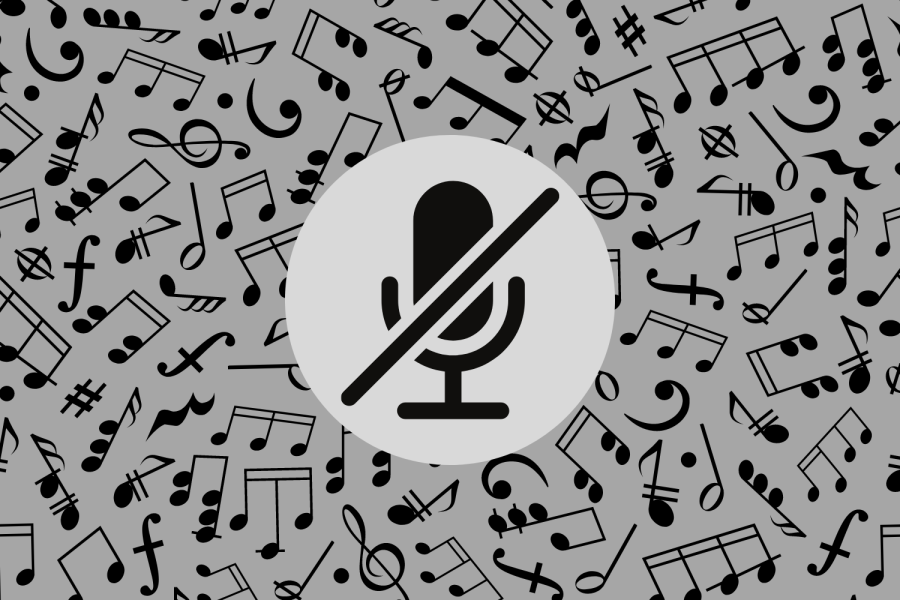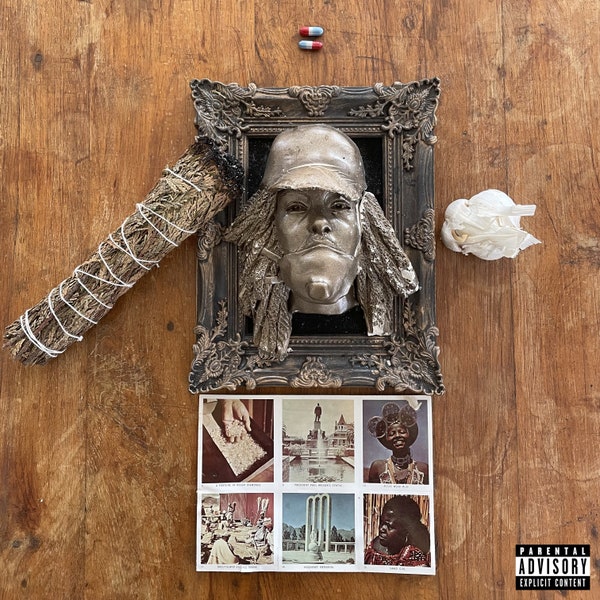
If you were to travel back to the absolute sonic beginning of Earl Sweatshirt’s fabled, decade-long hip-hop career—back to the posse of scrawny teen skaters that called themselves Odd Future, back to the knotted hair and bug eyes, back to the first few days that young people started spending less time on television and more time on the internet—you would find that, strangely, Earl’s own voice isn’t the one tasked with handling introductory duties.
The year would be 2010, and the rapper, born Thebe Kgositsile, would have just uploaded his debut mixtape to oddfuture.com. The first track, “thisni**augly,” would begin with adolescent rap peers Tyler, the Creator and Taco Bennett ruthlessly slandering him with expletive-riddled insults: including but not limited to “this ni**a’s forehead looks like a fuckin’ big-ass moose,” “this ni**a’s lips look like a split sundae,” and “he a bitch.” Earl’s own input would not come until, at the very end of the track, an affirmative voice declares “trust me guys, he can rap,” before urging him to “just say something”—symbolically commencing a near-half hour experience of snarled rape jokes, teenage fever-dream rhymes, and cardiac arrest fuel for protective parents worldwide.
On his latest album, it becomes eerily apparent that in a way, even beyond the childish, slapstick vulgarity that populated much of his now-defunct collective’s ascent, the brutal inauguration of Earl Sweatshirt’s career was somewhat fitting. It feels like somewhere beneath the foul-mouthed adolescent that teenagers adored lurked a silent, precocious wisdom, one that didn’t exactly fit with the brand its surroundings banked on, but now has found a permanent home from which to unfurl. Listening to “Sick!,” you get the sense that that fateful “trust me guys, he can rap,” didn’t only serve as a line in a childish skit, but an omen that continues to echo for as long as his career lasts; the ethos of being the youngest member of a youth-revolutionizing rap group carried with it a persistent task of living up to an entire generation’s growing expectations—can he even rap? And somehow, with each release, Earl Sweatshirt has managed to let us know not only that the answer is yes, but that he could be a rapper and a steady voice in unsteady times.
Third in a series of more thematically-complex LPs spanning from 2015’s “I Don’t Like Shit, I Don’t Go Outside,” “Sick!” was originally inspired by a book of African-American folktales called The People Could Fly that his mother, a law professor at UCLA, would read to him while he was growing up.
“Once the lockdowns hit” though, Earl told Highsnobiety in its January cover story, “people couldn’t fly anymore. A wise man said art imitates life. People were sick. The people were angry and isolated and relentless. I leaned into the chaos because it was apparent that it wasn’t going anywhere. These songs are what happened when I would come up for air.”
Much of “Sick!”’s value lies in its uncompromising vulnerability. It doesn’t pretend to be exempt from the bonds weighing down the outside world, and either because of or as a side effect of this, the in-your-face swag-rap gospel he preached in his earliest releases is nowhere to be found. A cathartic, mirrorlike honesty shines through the cracks. The beats are obscure and hazy, bearing as few answers as the era they hail from, and the half-mumbling half-prophetic intonation of Earl Sweatshirt reflects the same questioning plaguing us all. But somehow, it all registers as if he’s tapped into a sort of enduring knowledge that permeates the anxiety of the times: no matter what, a voice can outlast a crisis so long as it’s not being used to sugarcoat it.
This candidness shows its face, even when Earl’s own voice—just as it was twelve years ago, amidst torrents of curse-laden insults from the mouths of his peers—is absent. On “Tabula Rasa,” for instance, the New York-native hip-hop duo Armand Hammer are enlisted for intricate bars that don more of a confessional, stream-of-consciousness cloak than a blatantly commercial one. “Give my enemies the good news: time flew,” group member Billy Woods grumbles at some point, seeming to narrowly avoid stumbling over himself with every increasingly self-aware rhyme. It’s a welcome surprise in a rap culture that has seen pissing on the graves of rivals become a meme—what if, Woods inadvertently asks us, the enemy wins in the end? “Tabula Rasa” is sampled from Billy Paul’s 1972 earworm “I’m Gonna Make It This Time,” and all throughout, the oh-so-silent implication is made that in an era where there have been countless I’m-gonna-make-its for countless this-times, both the reality that we may not actually make it, and the fact that this is perfectly fine, can exist simultaneously.
On “2010,” the album’s lead single, the instrumental backing mans the task of emulating our generational sense of confusion. The beat sounds like what a kaleidoscope looks like—with every twist it unfurls into colors that weren’t there at first glance, bringing along with it jagged edges, complex curves, and angular shards that threaten to explode into pointy debris at any given moment. The atmosphere created by such a busy soundscape makes it so that Earl Sweatshirt’s voice, even when it’s using playful, Olympics-themed wordplay to denote the ounces of marijuana he’s carrying, or referring to wild illusory visions conjured from being high, a beacon. Because the haziness of their surroundings creates a crisis to be emerged from, it’s easier for us to cling onto the words—our sole ostensible savior from the madness—even more than we typically would with any other song, and therein, the most affirmative utterances are infinitely amplified. “Livin’ on the fly, tryna wing it,” Earl raps, the sentiment echoing louder than its chill delivery. “We got us a fire to rekindle.” Though we don’t know what fire in particular Earl is referring to, and for someone like him it could be many, there is something about this line, and its several fellow proclamations laced throughout the track, that feels undoubtedly universal. More than ever, the world writ large is in the dark—and at the same time that the epistemic candle that leads the way is vital, so is the you-live-you-learn approach that promises to light it anew. In order to rekindle a fire, you must first admit that the fire is out. Earl Sweatshirt knows that you don’t get to that point by pretending everything is okay. “(People) are seeing right now the limits of an aesthetic,” he told Rolling Stone in a pre-release Q&A. “Without even getting into specifics, if you’re smart, you’re going to pick up on what I’m saying. An aesthetic is an aesthetic until that shit is real life.” On “2010,” and “Sick!” at-large, Earl seems to warn that if we make darkness our aesthetic, we also make it our deathbed.
Such disciplined vision is a far cry from the brazenly irreverent, swag-over-everything spirit he helped to champion ten years ago. In the closing moments of “Pigions,” a raucous (but admittedly funky) deep-cut on his debut mixtape that appears 8 tracks after the aforementioned roast session, we hear Earl’s voice vigorously shouting unthinkables alongside that of Tyler, the Creator. “Kill people, burn shit, fuck school,” the two chant in unison, uniform schoolyard energy making their obscenity all the more potent. “Odd Future here to steer you to what the fuck’s cool; fuck rules, skate life, rape, write, repeat twice; Odd Future young enough to get your priest mouth drool.” What was terrifying to parents across the globe—including Earl’s own mother, who would send him off to a Samoan boarding school immediately after the mixtape’s release—was that melodies like these turned into mantras, which turned into moods, which turned into mentalities. It was something contagious, and whether they knew, cared, or neither, the disillusioned teenagers that formed Odd Future from a shared love of skateboarding and nihilism were opening their fellow kids’ eyes to a paradigm shift. In the age of “Obama Pop,” this movement, one that cared as little as it felt its feet on the ground, was a welcome inhabitant of a culture that was already flying, whether it was in Nicki Minaj’s starships, or through the bars of Bruno Mars’ heavenly prison cells.
But a decade after those airy days, the moment has changed, and we don’t need nearly as much swaggier-than-thou banter as we do honest communication. Earl Sweatshirt, unlike the majority of his rap peers that continue to flaunt clout in times of global crisis, has taken this in stride. Yes, if you were to travel back to the absolute sonic beginning of his fabled, decade-long hip-hop career—back to the posse of scrawny teen skaters that called themselves Odd Future, back to the knotted hair and bug eyes, back to the first few days that young people started spending less time on television and more time on the internet—you would find that, strangely, his “introduction” is a ruthless roasting at the hands of his compadres. But forward the clock back to today, and even though the quiet kid that suffered the ridicule still lives on, you’ll find that not only has he found his voice, but a generation has found theirs, too.












